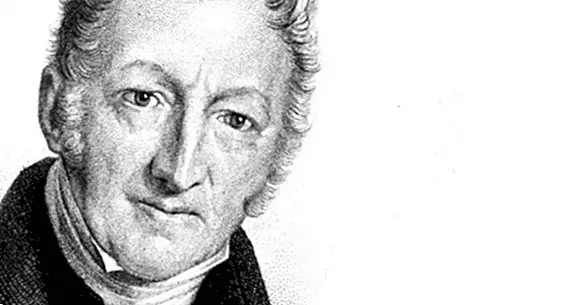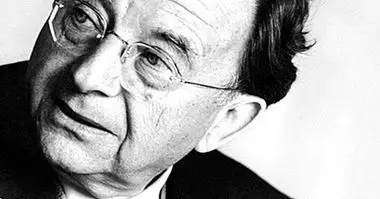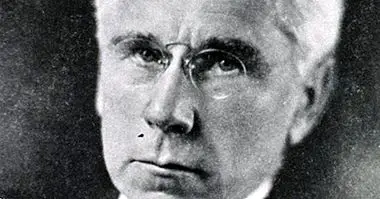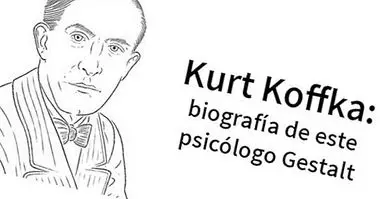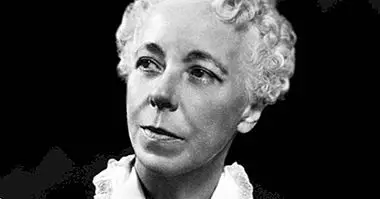Thomas Malthus: biography of this researcher in political economy
Thomas Malthus (1766-1834) was an English demographer and economist recognized by a theory that bears his name: Malthusianism. Broadly suggests that population growth inevitably leads to a decrease in food supply, so it proposes a control of reproduction and birth.
Then we will see a biography of Thomas Malthus , as well as some of its main contributions to economic and demographic thought.
- Related article: "The theory of biological evolution"
Thomas Malthus: biography of a leading economist
Thomas Malthus was born on February 13, 1766 south of London. He was the sixth of seven brothers, all sons of Henrietta and Daniel Malthus. It was an important family of intellectuals, who even they were close friends of philosophers such as David Hume and Jean-Jacques Rousseau . With the passage of time Malthus created a close relationship with another great economist of the moment, David Ricardo.
From a young age, Thomas Malthus was able to access the Jesus School in Cambridge. There he took courses in declamation, Latin and Greek, although his main subject of study was mathematics. By the year 1791, Malthus had graduated as a specialist in these areas, so he was appointed to the same school two years later. In 1979 he was ordained and became an Anglican pastor .
Years later, in 1804, he formed a family with Harriet Eckersall, with whom he had three children, and whose education was strongly influenced by the liberal ideas on the education of Rousseau.
Like other members of his family, Thomas Malthus had a cleft palate that affected his speech, as well as a cleft lip. For this reason he had refused to make a personal portrait, which was typical at the time. It was until 1833, after having undergone surgery, when he decided to carry it out.
Thomas Robert Malthus he died on December 29, 1834 in Rookery , although and his remains are in Bath Abbey in England.
- Maybe you're interested: "Foucault and the Tragedy of the Commons"
Academic activity and memberships
Malthus served as professor of history and political economy at Haileybury College in Hertfordshire. In fact, this was the first time that the term "political economy" was used in the academic context of Great Britain, referring to a subject.
In 1819 Malthus was elected a member of the Royal Society, and in 1821 joined the Political Economy Club . Other members of the same society were David Ricardo and James Mill. Almost a decade later, in 1833, Malthus was elected a member of the French Academy of Moral and Political Sciences, as well as a member of the Royal Academy of Berlin. Finally, in 1834, Malthus was one of the founders of the Statistical Society of London
Malthusianism
In the year of 1798, Malthus published a first edition of the text "An essay on the principles of population and how they affect the future of the development of society". Since he published it, this work had a wide impact. In a strong way, Malthus argued that social development was doomed to failure due to accelerated population growth. In turn, population growth would increase more and more rapidly if strict control was not exercised .
Thus, the problem posed by Malthus is that this population growth did not occur in tandem with the increase in livelihoods.
While the population increase had a "geometric rhythm", the means of subsistence increased in an only "arithmetic" progression. The population would tend to grow always beyond the limits of subsistence , which would eventually result in poverty, wars, disease and death. For Malthus, one of the remedies would be, for example, self-control and contraception.
Some criticisms
His work is recognized as a pessimistic vision, since presented poverty as one of the inevitable phenomena for the human species. Likewise, his work has been criticized for having started in an abstract and analytical language. In fact, he has been claimed not to have carried out rigorous statistical analyzes, despite the fact that this research method was in full growth in Europe and Great Britain.
For some critics, although Malthus had used empirical evidence in the development of his theory, the theory itself tended to be less concise in these tests, and stronger in the theoretical development itself.
Either way, Malthusianism was quickly incorporated into the main economic theories and it represented a major break with excessive economic optimism, while offering a justification for the theory of wages based on minimum subsistence costs and discrediting more traditional forms of charity.
Outstanding works
Some of the most representative works of Thomas Malthus work are An Essay on the Principle of Population, of 1933; An Investigation of the Cause of the Present High Price of Provisions, of 1800; Y Principles of Political Economy in two volumes of 2008. They are also recognized works as Definitions in Political Economy , of 1827 and Importation of Foreign Corn of 1996.
Bibliographic references:
- Thomas Robert Malthus (2014). New World Encyclopedia. Retrieved October 1, 2018. Available at //www.newworldencyclopedia.org/entry/Thomas_Robert_Malthus.
- Thomas Robert Malthus (2018). Encyclopaedia Britannica. Retrieved October 1, 2018. Available at //www.britannica.com/biography/Thomas-Malthus.

